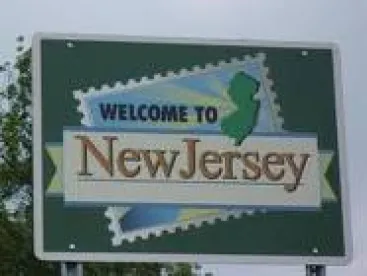“Oh, to have been a fly on that jury room wall...” After the entry of a jury verdict, following months or, in many instances, years of litigation, this thought is not uncommon among most attorneys and their clients. It is a natural reaction to want to discover the “whys” behind a jury verdict. Even judges are not immune to curiosity regarding jury deliberations. At times, such judicial curiosity has led to post-verdict, informal, ex parte communications between judges and jurors. Recently, the New Jersey Supreme Court examined the propriety of these post-verdict ex parte judge and jury communications, and, in a unanimous opinion, prohibited them. Davis v. Husain, 2014 N.J. LEXIS 1391, at *29 (Dec. 23, 2014).
In 2007, plaintiff Tomikia Davis filed a complaint against her former employers, defendants Dr. Mira Kheny and Dr. Abbas Husain, asserting violations of New Jersey’s Law Against Discrimination based on allegations of hostile work environment and sexual harassment and retaliation. Davis eventually settled with Dr. Kheny while her claims against Dr. Husain proceeded to trial. At the conclusion of the trial against Dr. Husain, the jury rendered its verdict for Davis and awarded $12,500 in damages. Following the discharge of the jury but before post-trial motions were argued and judgment was entered, the trial judge, under the guise of self-education, conducted an informal, ex parte discussion with the jurors. During this discussion, a juror told the trial judge she was surprised that Dr. Husain did not place his left hand on the Bible before he testified. Although the trial judge did not make a record of the juror’s observation, he informed counsel of the remark afterwards. In a certification filed in connection with Dr. Husain’s motion for remittitur, counsel for Dr. Husain referenced the juror’s remark and further noted that Dr. Husain did not place his left hand on the Bible due to his cultural beliefs. At oral argument, the trial judge expressed surprise that the juror’s comment had been raised by counsel and further noted that the juror’s comment was insufficient to warrant a new trial. Subsequently, Dr. Husain appealed the judgment, arguing among other things, that the trial court erred in failing to declare a mistrial based on the juror comment. Although it questioned the trial judge’s conduct in holding an informal ex parte discussion with the jurors, the Appellate Division, by majority, affirmed the trial court’s decision not to grant a new trial, noting that there was no evidence of manifest injustice. See Davis v. Husain, 2013 N.J. Super. Unpub. LEXIS 583 (App. Div. Mar. 13, 2013). The dissenting judge, however, found that the trial judge’s actions violated Canon 3A(6) of the Code of Judicial Conduct, which prohibits judges from initiating or considering ex parte communications in connection with pending or ongoing proceedings. Id. at *30-31. The dissent further found that remand for a new trial was warranted since the true impact of the juror’s comment was unknown. Id. at *33-34.
The New Jersey Supreme Court heard the appeal, and decided to remand the matter for further investigation into the juror comment. In its opinion, the Court laid to rest once and for all any uncertainty that may have existed regarding post-verdict (or pre-verdict) ex parte judge and jury communications: “Ex parte discussions between the trial court and jurors are inappropriate and improper, both during trial and after the jury is discharged.” Davis v. Husain, 2014 N.J. LEXIS 1391, at *20 (Dec. 23, 2014). Reaffirming the sanctity and secrecy of juror deliberations, the Court explained that “[i] nquiring into any juror’s thought process is a significant intrusion into the deliberative process.” Id. at *20. As such, any post-verdict ex parte communications between the judge and jury must be prohibited. Id. at 29-32. The only exception to this prohibition is the narrow circumstance recognized by New Jersey Court Rule, R. 1:16-1, which permits “inquiry into the events surrounding the jury’s decision only where a good cause showing is made that the jury’s decision was tainted by misconduct. Id. at *30 (internal quotations and citations omitted). Yet, even a Rule 1:16-1 inquiry must be narrowly tailored to probe only the effect of potential misconduct and not the mental processes of the jurors. Id. at *31. Moreover, a Rule 1:16-1 inquiry is a formal investigation to be conducted in the presence of counsel. See id.
As Davis v. Husain illustrates, jury verdicts tend to pique curiosity in attorneys, clients and judges alike. However, one’s curiosity must remain just that. Indeed, regardless of one’s position in the courtroom, inquiry into jury deliberations will not be tolerated, except in the most limited of circumstances.




 />i
/>i

